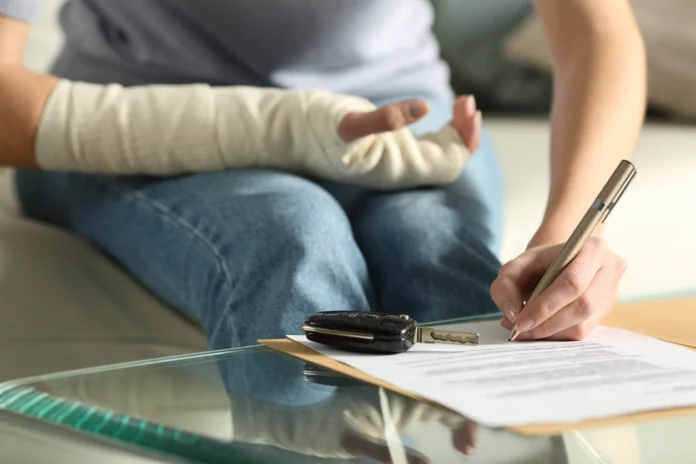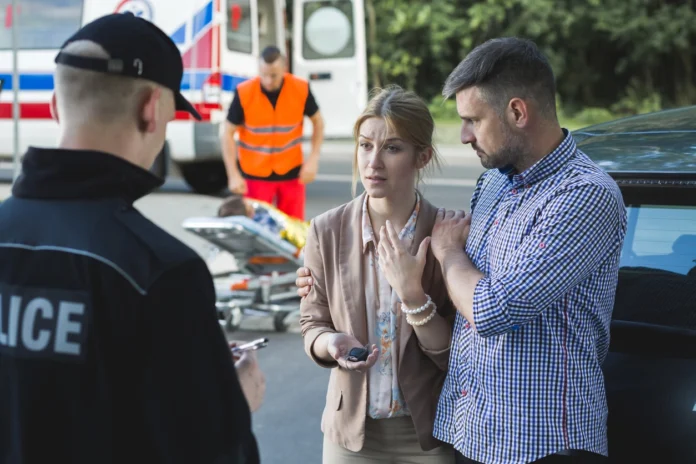Car accidents can be a traumatic experience, and dealing with the aftermath can be equally challenging. One of the most significant challenges is negotiating with insurance companies to maximize your car accident settlement. While it is the insurance company’s job to pay out a settlement to cover damages, they will often try to offer the lowest possible amount. This is where negotiation skills come in handy.
First Gather Evidence

One of the most important things you can do to maximize your car accident settlement is to gather as much evidence as possible. This includes taking photos of the accident scene, the vehicles involved, and any visible damages. It also includes getting witness statements from anyone who saw the accident and keeping track of any medical bills, repair costs, and other expenses related to the accident. Having solid evidence to back up your claims will help you negotiate a higher settlement amount. You may also want to consult with an attorney to ensure that you are collecting all of the necessary evidence to build a strong case.
You Should Be Honest
Honesty is always the best policy when negotiating with insurers. Lying or exaggerating your injuries or damages will only hurt your case in the long run. Insurance companies have access to a lot of information, and they will likely uncover any falsehoods. Stick to the facts and be truthful about your injuries, damages, and expenses. If you are unsure about something, say so and provide additional information as it becomes available. Your credibility is key to getting a fair settlement, so be sure to be as honest and transparent as possible throughout the negotiation process.
It Is Recommendable to Know Your Rights

As a victim of a car accident, you have legal rights that entitle you to compensation for damages and injuries. Familiarize yourself with these rights, including the right to seek medical treatment, the right to file a claim with the insurance company, and the right to hire an attorney to represent you. Understanding your rights will help you negotiate from a position of strength. It is also important to know what type of insurance coverage you have and what is covered under your policy. If you have any questions or concerns, consult with an attorney who specializes in car accident cases.
Don’t Accept the First Offer
Insurance companies will often offer a low initial settlement amount to see if you will accept it. Don’t be tempted to take the first offer, as it is likely to be much lower than what you are entitled to. Instead, counter with a higher amount and negotiate from there. Remember that insurance adjusters are trained to negotiate, so be prepared to stand your ground. Work with your attorney to determine a fair settlement amount based on the evidence and documentation you have collected.
Consider Hiring an Attorney

If you are having trouble negotiating with insurers, consider hiring an attorney who specializes in personal injury cases. An experienced attorney will know how to negotiate with insurance companies and can help you get the maximum settlement amount. They can also handle any legal issues that may arise, such as filing a lawsuit. Be sure to choose an attorney who has experience with car accident cases and who is familiar with the laws in your state. Your attorney can help guide you through the negotiation process and ensure that your rights are protected.
Don’t Settle Too Quickly
Insurance companies will often pressure you to settle quickly, but this is not always in your best interest. It can take time to fully understand the extent of your injuries and damages, and settling too quickly may result in a lower settlement amount. Take your time and make sure you understand the full scope of your losses before agreeing to a settlement. Work with a professional and highly experienced Florida car accident lawyer to determine the appropriate amount of compensation for your injuries and damages. This may involve getting additional medical treatment or consulting with experts to assess the full extent of your damages.
Document Everything

Keeping a record of all communication with the insurance company is essential. This includes phone calls, emails, and letters. Write down the date, time, and content of each communication. This documentation will be helpful if there are any disputes later on. If you are communicating by phone, follow up with an email or letter summarizing what was discussed and confirming any agreements or promises made. Be sure to keep all medical records, receipts, and bills related to the accident in a safe place as well. Having clear documentation will help support your claims and provide evidence to negotiate a fair settlement amount.
Understand the Value of Your Claim
Before negotiating with insurers, it is important to have a good understanding of the value of your claim. This includes not only the cost of medical treatment and repairs but also any lost wages, pain and suffering, and other damages. Understanding the true value of your claim will help you negotiate from a position of strength and avoid settling for less than you deserve.
It Would Be Good To Stay Patient

Negotiating with insurers can be a lengthy process, and it is important to be patient. Don’t rush into accepting a settlement that is lower than what you are entitled to just because you are tired of negotiating. Rely on your attorney and work with him to develop a strategy and be prepared to wait for the right offer. Remember, the goal is to get a fair settlement that compensates you for all of your losses.
Be Prepared to Go to Court
If negotiations with insurers are not successful, you may need to take your case to court. While this can be a lengthy and costly process, it may be necessary to get the compensation you deserve. Your lawyer will assess the strengths and weaknesses of your case and develop a strategy for going to court. Be prepared to present evidence and argue your case in front of a judge or jury. With the right preparation and a strong case, you may be able to get a fair settlement through the court system.









